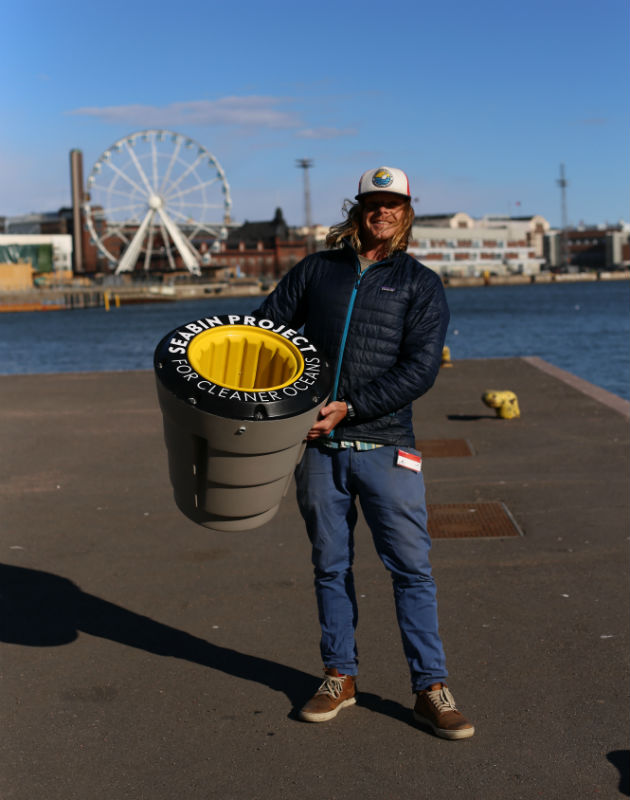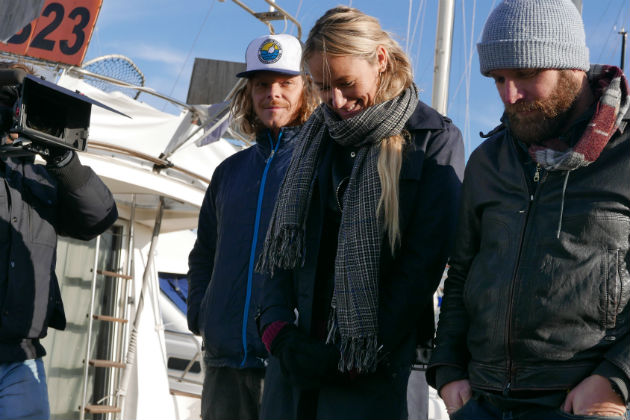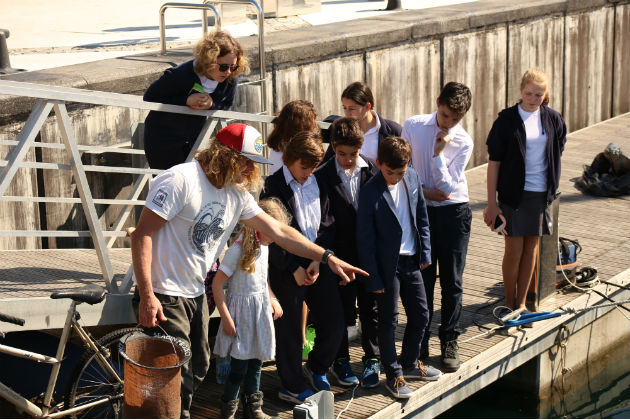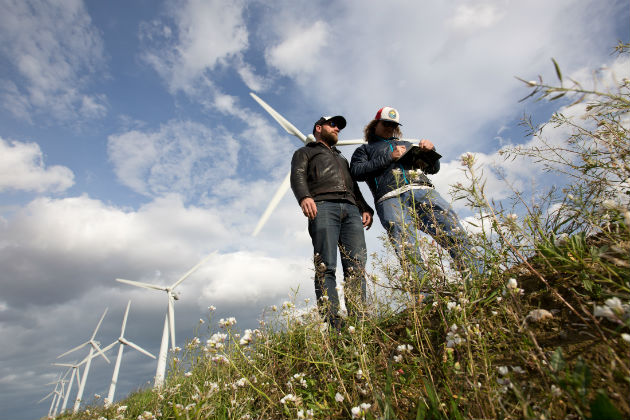17 August, 2017 By: Courtney Pearson
Speaking on the phone from outside of the Seabin factory on the island of Mallorca, CEO and co-founder Pete Ceglinski sounds like he’s roasting.
Mallorca might be known for its summer party lifestyle, but as the CEO of a company with a product that the world is crying out for, Perth’s Ceglinski spends most hours in the day working to bring the Seabin product to market.
The days are long and hot, with 40 degree days and a busy 360 square metre factory buzzing with activity with no air-conditioning.
But fitting for an entrepreneur, Ceglinski is ever the optimist.
“We’ve all got nice skin from sweating so much,” he laughs.
In an ideal world, the Seabins invention wouldn’t even exist. However in these modern, plastic filled times, the invention couldn’t come too soon.

Greenpeace says that about 10 million tonnes of plastic produced every year winds up in the water and according to the UN, 51 trillion microplastic particles float in the ocean.
This waste can go into the bellies of sea creatures or entangle them so they can’t feed. The UN predicts that by 2050, nearly all seabirds would have ingested plastic with currently more than 600 marine species being harmed by rubbish in the sea.
Ceglinksi and his business partner Andrew Turton want Seabins to be part of the global solution to the problem with visions of their floating bins in every marina around the world catching the rubbish.
“We’ve pushed the ocean to its limits and now it’s time to clean it up and be a bit more responsible,” says Ceglinski.
Turton originally came up with the idea around six years ago. The two friends, who were travelling at the time, returned to Perth to build a prototype.
The Seabin catches about 1.5kg of debris per day and is powered by a small submersible pump that filters the debris-free water back into the ocean. Not suitable for the open seas, it works in the calmer waters of a marina, catching rubbish before it can go further afield.
Given the island of Mallorca has 5000 marinas within an hour and a half flight of the island, it became the destination of choice to set up factory.

Beach boys to bins
Seabins is one of those rare beasts in the start-up world – a genuinely novel idea that solves a problem combined with co-founders who have passion and complementary skills.
Turton, the inventor, sailor and ocean lover, had the epiphany while working on a marina in Los Angeles and watching the daily flow of rubbish in the water.
Ceglinski, a keen surfer and racing yacht builder, added his product design skills to the idea after spending time saving up some money.
Both are driven by the idea of saving the ocean from the scourge of human waste, so much so that they have even turned down funding if they suspected that the company offering it might also be contributing to the problem.
"“Andrew told me about this idea of his and for me it was that moment where everything just clicked,” he says. “For the next year I saved my money, and then I quit my job [working on yachts], and I found a factory here in Mallorca to use.”
The sweat and the cost involved is real.
Finalising the design was the first challenge, trialling different materials like hessian to construct the Seabin. They finally settled on an 110V or 220V water pump, and recycled plastic mesh to contain the floating rubbish.
Ceglinski said the advice he received at Northbridge School of Design became a mantra – keep it simple, stupid.
“That’s something I’ve taken to heart for the whole Seabin design process,” he says. “It’s the hardest thing in the world to do.”

As well as sinking all of their own money into the project, they raised more than AU$300,000 in 2015 through crowdfunding.
However earlier this year, they found themselves with just $5000 left in the bank and a product not yet ready to go.
“It’s a little bit demoralising when you have such an amazing product that is just about to be commercially available, and then you start to hit rock bottom,” Ceglinski says.
Salvation came in the form of an start-up accelerator program run by Booking.com, which gave them EUR360,000 in extra funds, but some new skills in business management and commercialisation.
Ceglinski describes the process as “character building”.
A winning year
Things have been steadily on the up since.
Seabins now has a bigger team and worked with an industrial partner on new technology to add collecting oil and microfibres to the Seabin’s rubbish collection skills.
With Seabins in six locations, the plans are expansion to every port and marina they reach.
“Our equation is you need one Seabin for every 300 square metres of water,” says Ceglinski.

Two of the marinas using Seabins have won awards recognising their sustainability practises – exciting news for Ceglinski, who says he’s “stoked”.
“Every day the outlook is getting a little bit better,” Ceglinski says. “The way we’re keeping our heads up is we’re all dreamers, I reckon,” he says.
“Finally, we’ve got something and it’s working and it’s commercially viable.”
They haven’t forgotten home either.
“Our short term goal in the next five years is to have operations in Australia where we all have our passions and our family and our roots."
Are you an ocean lover?
Did you know that RAC offers Boat Insurance? Get local and trusted cover for your boat in WA.
This product is issued by RAC Insurance Pty Ltd. Benefits are subject to policy conditions and PED Guide. Before you make a decision, please check the PDS and TMD to see if the policy is right for you. Limits and exclusions apply.
